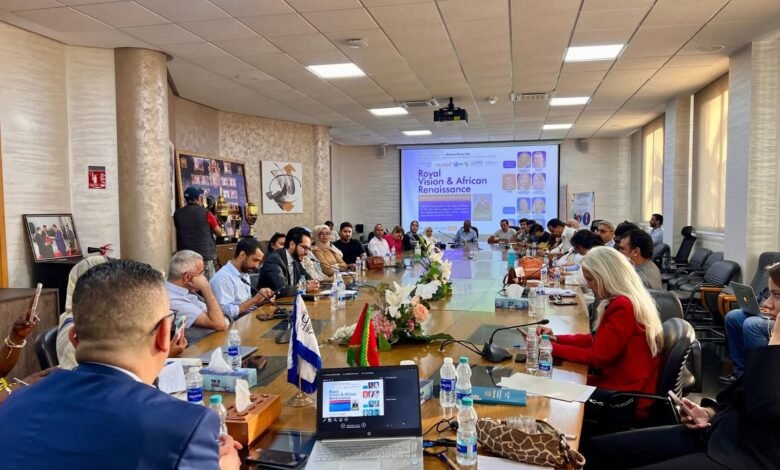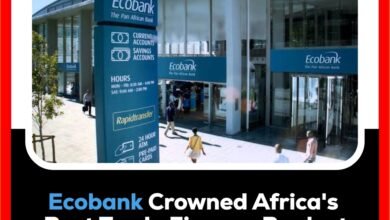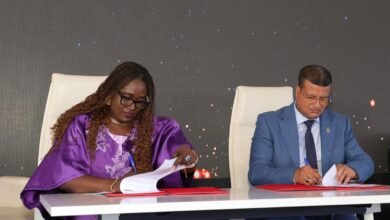Morocco’s Strategic Sovereign Model: A Vision Rooted in Stability, Development, and African Solidarity

At the official launch of The New Africa Magazine’s special royal edition on July 17, 2025, Ms. Karima Rhanem, President of the International Center for Diplomacy and Global Senior Managing Editor of the magazine, delivered a keynote presentation titled: “The Strategic Model of Sovereign Foresight of His Majesty King Mohammed VI.” Her address offered an in-depth look into Morocco’s distinctive and replicable leadership approach — one founded on sovereignty, strategic foresight, and people-centered development.
“The Strategic Model of Sovereign Foresight of His Majesty King Mohammed VI is more than a national policy framework. It is a Moroccan model with an African soul — anchored in sovereignty, open to the world, and oriented toward the future.”
Ten Pillars of Sovereign Leadership
Ms. Rhanem detailed ten interdependent pillars that form the foundation of the Moroccan leadership model: strategic stability and gradual reform, human-centered development, institutional trust, South–South diplomacy, sovereignty-based mediation, moderate religious leadership, humanitarian migration, Atlantic integration, crisis preparedness, and a responsive, listening monarchy. Each component reflects a deeply rooted yet forward-looking vision of governance.
This holistic framework enables Morocco to balance historical legitimacy with innovation, reinforcing public trust and creating resilient systems prepared for global uncertainty.
Foreign Policy: Anchored in Sovereignty, Committed to Peace
She described Morocco’s foreign policy under His Majesty King Mohammed VI as principled, consistent, and respectful of national dignity. Morocco maintains its territorial integrity without compromise, while promoting win–win partnerships rooted in mutual respect.
“Morocco responds with concrete actions and achievements, not rhetoric — prioritizing peace, development, and international cooperation.”
Rather than imposing solutions, Morocco facilitates dialogue based on the sovereign choices of nations — a diplomacy of humility and wisdom.
The Southern Provinces: Sovereignty as a Driver of Development
Highlighting the Southern Provinces, Ms. Rhanem pointed to Dakhla and Laayoune as living examples of Morocco’s Autonomy Plan in action. These cities have witnessed rapid infrastructure growth, economic expansion, and citizen-led development under national sovereignty.
“The development model in the Southern Provinces proves that sovereignty, far from being restrictive, is a driver of growth, stability, and inclusion.”
This transformation showcases how territorial integrity and inclusive development go hand in hand, setting a new standard for regional empowerment.
A Scalable Model for Africa
Ms. Rhanem emphasized that Morocco’s strategic foresight is not a one-size-fits-all solution, but an adaptable model for other nations seeking sovereign, ethical, and future-driven governance. It provides direction for governments designing public policy, institutions restoring trust, businesses pursuing ethical performance, and youth and civil society seeking alignment between values and action.
“Morocco offers no universal recipes — but shares a proven, sovereign, and scalable model of leadership.”
Through this model, Morocco presents not only a path forward for itself, but a compelling proposition for African renewal rooted in dignity, cooperation, and resilience.





